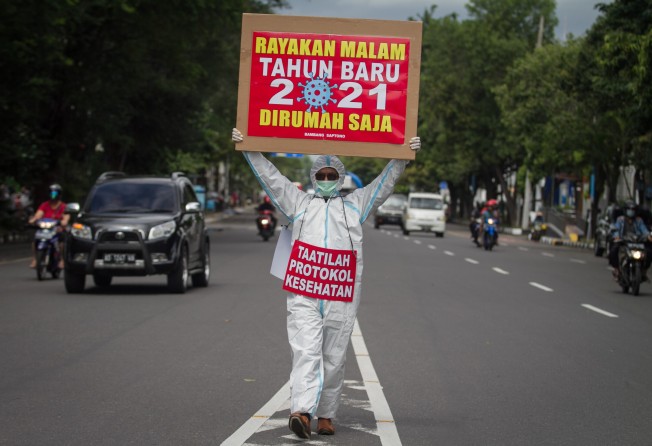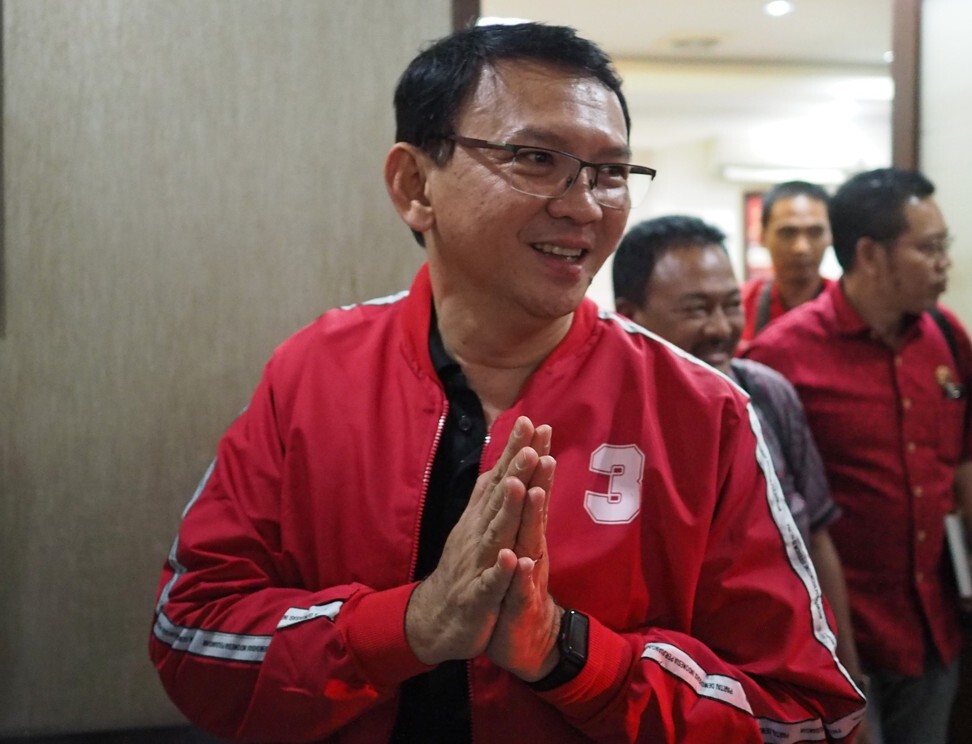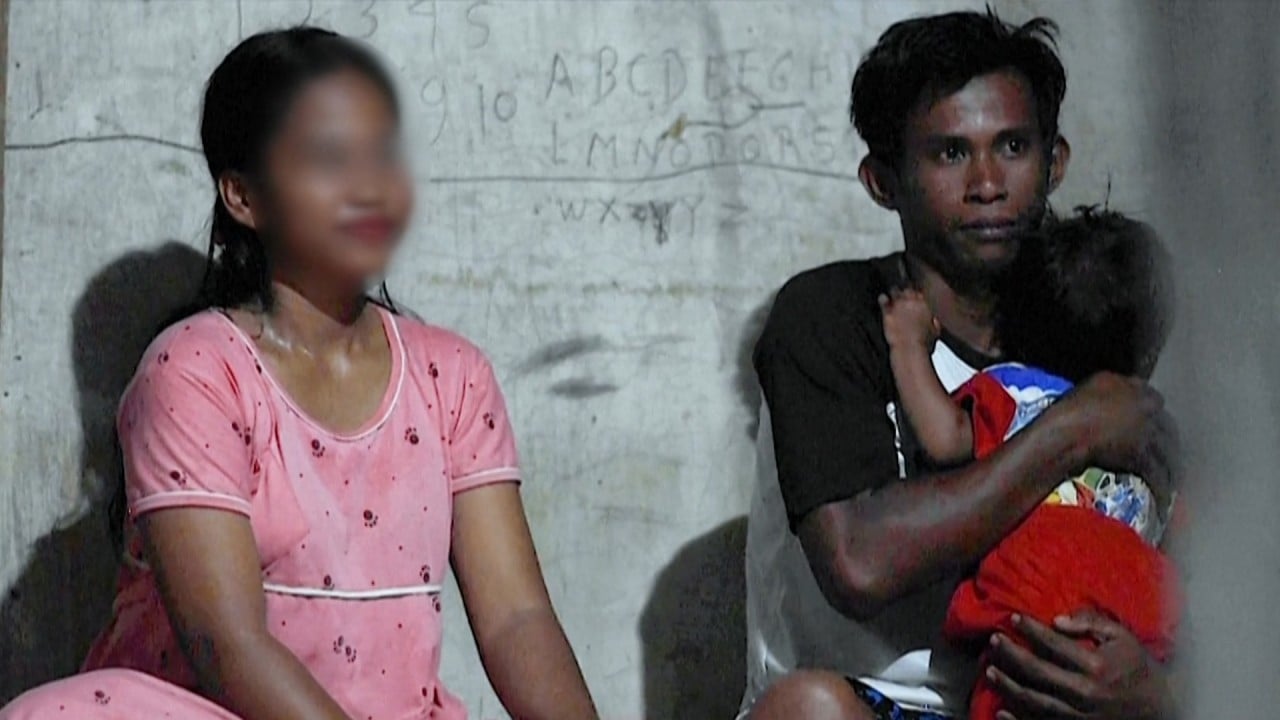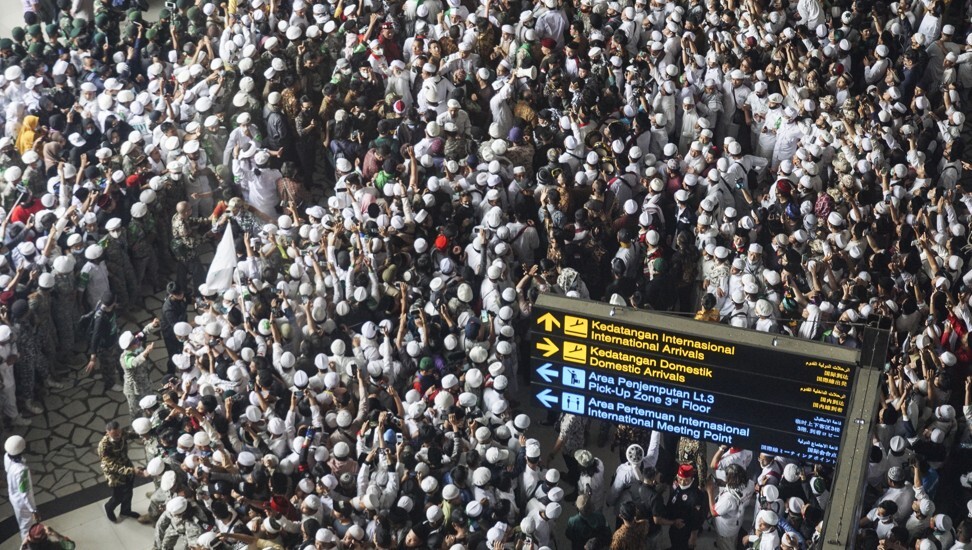
02:13
Only 60 graves left for Indonesian Covid-19 victims as cemetery in capital Jakarta fills up

As the world’s most populous Muslim country gears up to vaccinate its population against Covid-19, its top Islamic clerical body is playing a key role in helping it achieve herd immunity from a virus that has already torn through its 34 provinces.
The influential Indonesian Ulema Council, or MUI, in November issued a recommendation allowing the use of vaccines derived from human cells in emergency situations, even though these vaccines are traditionally banned under Islamic law. Last month, it said it expected to issue a halal certificate for the coronavirus vaccine developed by China’s Sinovac Biotech, amid a surge of misinformation among Muslim social media users in Indonesia and Malaysia about the vaccine flouting Islamic teachings.
The election of new, more moderate leaders to MUI in November is of great significance and is fuelling guarded optimism that Southeast Asia’s largest economy, where 90 per cent of the population of 270 million people are Muslim, could reverse a rise in conservatism and radicalism.

02:13
Only 60 graves left for Indonesian Covid-19 victims as cemetery in capital Jakarta fills up
Alex Arifianto, who researches Indonesian politics and political Islam at Singapore’s S Rajaratnam School of International Studies, said the MUI has had a large influence on the lives of Indonesian Muslims since 2005, when Jakarta made it the primary authority for the practice of Islam. The organisation receives some government funding but is quasi-autonomous.
“Virtually everything they do in their personal lives, from what kind of dress they should wear in public, what goods or services they may purchase, to what kind of behaviour or Islamic sect they should avoid joining, are regulated by MUI fatwa,” Arifianto said.
The new MUI chairman, Miftachul Akhyar, a senior cleric, is also the supreme leader of Nahdlatul Ulama (NU), the country’s largest Muslim organisation, which has 90 million followers and is known for its moderate views.
Indonesian Vice-President Ma’ruf Amin was previously the MUI chairman but was made non-active when he assumed is new post in government last year.
Syafiq Hasyim, a lecturer at the International Islamic University in Jakarta, said Miftachul, an expert in Islamic jurisprudence, was more interested in religious scholarship than “playing politics”.
“He can be a little bit literalist in his understanding of Islam, but can still take a moderate position,” said Syafiq, who has tracked MUI for years.
Arifianto said: “Within the NU inner circle, Miftachul is considered as a moderate-to-conservative cleric, which represents the mainstream view within the organisation.”
The MUI’s November election was also seen as a purge of President Joko Widodo’s critics as it removed several clerics who organised the “212 movement” in 2016 opposing the re-election of Jakarta’s first ethnic Chinese and Christian governor, Basuki Tjahaja Purnama, who is also known as Ahok.

Ahok, an ally of Widodo, had angered Muslims in a campaign speech where he had referred to a verse in the Holy Koran.
The 212 movement brought out almost a million white-garbed Muslims onto the streets of Jakarta in numbers not seen since the 1998 anti-President Suharto protests. Ahok was subsequently jailed for two years after being convicted for blasphemy, showing the power of MUI’s conservative leaders including Bachtiar Nasir, who also was chairman of the National Movement to Safeguard the Indonesian Ulema Council’s Fatwa (GNPF-MUI), a conservative Islamic group that co-organised the massive anti-Ahok rally with other conservative groups.
MODERATE EXPECTATIONS
Ahmad Suaedy, who heads the faculty studying Islam in Indonesia at Nahdlatul Ulama University Indonesia (UNUSIA) in Jakarta, said the MUI became extremely conservative between 2005 and 2010 as a result of its former leader, Susilo Bambang Yudhoyono, winning the 2004 presidential election.
The former general, popularly known by his initials, SBY, had received much support from conservative clerics.
“As a result, whatever the conservative clerics wanted, SBY accommodated them,” said Suaedy, adding that it also marked a period of Islamicisation of the government bureaucracy, referring to the rise in hardline ideology in the civil service. Last year, authorities launched a website allowing the public to report if civil servants posted radical content.
Back then, Ma’ruf – who only became less conservative after becoming vice-president – and prominent Islamic scholar Din Syamsuddin were seen as instrumental in issuing controversial fatwas, including one against the minority Muslim sect Ahmadiyah, which was deemed to be deviant.
As a result, hardline Islamic groups – including the recently banned Islamic Defenders Front (FPI) – had no qualms about violently attacking Ahmadiyah followers, who are estimated to number more than 400,000. Suaedy of UNUSIA was beaten up by FPI members in 2008 during a rally commemorating the birth of the state ideology Pancasila, which emphasises unity amid diversity.
“The fatwa against Ahmadiyah was very devastating for the group. There were approximately a dozen violent attacks against the group, most significantly in West Java and West Nusa Tenggara provinces, that occurred between 2005 and 2020,” said NTU’s Arifianto.
As a consequence of these attacks, tens of thousands Ahmadiyah followers were ousted from their homes and were forced to relocate to refugee camps with substandard living conditions. Arifianto said that until today, local authorities and residents have refused to let them return, although Indonesia’s newly appointed religious affairs minister, Yaqut Cholil Qoumas, said last week that he would uphold their rights and stop them from being persecuted.

02:24
Child marriages on rise in Indonesia as Covid-19 deepens desperation for poverty-stricken families
The MUI in 2005 also issued a fatwa against pluralism, liberalism and secularism, saying the concepts were against the teachings of Islam.
As a result, the prominent Liberal Islamic Network – a group of young Islamic scholars and intellectuals who advocated for the compatibility between Islam and various Western values ranging from democracy, religious tolerance, and free market capitalist system – lost much of its public support.
JIL effectively ceased operation by 2008, just three years after the fatwa was issued, according to NTU’s Arifianto. While its most prominent activists, including Ulil Abshar Abdalla and Ahmad Sahal, are still active public intellectuals, they remain “outcasts” to conservative Muslims, he added.
Arifianto urged the MUI leadership to condemn all forms of coercion and violence done in the name of Islam.

“It should ban groups like FPI from conducting raids and assaults against Ahmadi and Shi’a Muslims, LGBTQs, non-Muslims, and other religious minorities, and should condemn them in clear and unequivocal terms if they commit these assaults,” Arifianto added.
He also called on the MUI leadership to consider issuing a new fatwa declaring hate speech and takfiri (accusations of apostasy) spread over social media as haram, or not permissible under Islamic law.
It remains to be seen if the MUI would be able to also control the actions of hardline groups, which have been emboldened by the return of the FPI’s leader, Rizieq Shihab, from his self-imposed exile in Saudi Arabia in November.
“I hope MUI – along with NU and Muhammadiyah [Indonesia’s second-largest Muslim organisation] – can issue strong condemnations against these actions and to encourage Indonesian Muslims not to take the law into their own hands in this very tense situation,” he said.